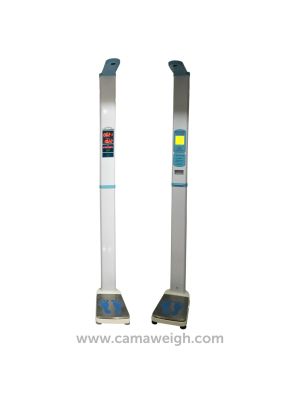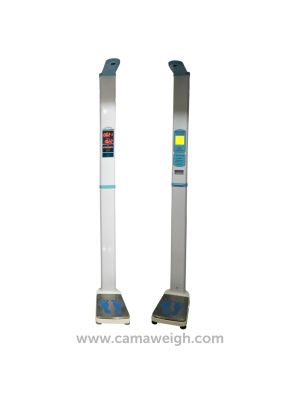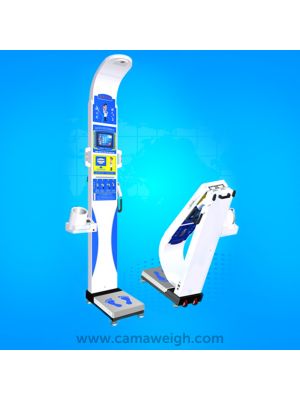BMI Scales
Camaweigh BMI Scales
Medical scales are the type of scales which are used in the medical field. These weighing equipment are specially designed for medical purposes. One type of medical scales offered by Camaweigh is the BMI scale. BMI stands for Body Mass Index, which is the measurement of a person’s body fat based on their weight and height. BMI scales are used to measure a person’s body fat content which is derived by the BMI module after determining their weight and height values. BMI scales are also called body fat scales because that is what they are designed to do, measure body fat. Measuring body fat percentage of a person is very important when it comes to their overall wellbeing. Weight is always associated with health risks which come with being overweight or underweight. The BMI scale is also an indicator of how well someone is taking care of their body
How BMI Scales Work
But how do BMI scales function and work? BMI works under the principle of bioelectrical impedance analysis which is a commonly used method in determining the composition of a person’s body. BMI scales are a pretty simple device to use and don’t require the help of medical personnel. Ordinary people can use them since their operation is pretty straight forward. The person will just need to step on the base platform of BMI scale, and then a pretty low frequency electrical current is passed through one foot. The electrical current travels from one foot then travels up to the pelvic area and then down the other foot. The electrical current exits the foot and goes back to the BMI scale where it is registered. The time the current travel a complete cycle determines the impedance of the patient’s body. The longer for the electrical current to complete a cycle, the higher is its bioelectrical impedance. Therefore, it only means that the BMI scale user has a high body fat percentage.
BMII Scale Accuracy
BMI scales or body fat scales are always question for the accuracy of measurement. BMI scales undoubtedly work when determining the fat composition of a person’s but many conducted tests have proven that BMI scales aren’t as accurate as other body fat determining equipment. This is because studies claim that the electric current only reaches the bottom half of the body and most likely cover the upper half. Despite these claims BMI scales provide almost accurate results. Many factors can also contribute to the accuracy of BMI scales or body fat scales. Each gender has different body fat percentages. Women are said to have higher body fat percentages than men. Every person’s body reacts differently to fat. Depending on your body, it can store fat in different places compared to others. Many people can store more fat on their thighs, while some store more on the arms and chest. This can greatly affect the result of BMI scales.
Types of BMI Scales
Camaweigh’s offers different models of BMI scales which have added functions rather than just measure a person’s body mass index. Camaweigh offers BMI scales which can print the result of the BMI test so the user can check their body fat percentage on the spot. Another type of BMI scale which Camaweigh offers is the BMI scale with blood pressure and heart rate. This can be considered a complete package because it is a BMI scale but can also measure your blood pressure and heart rate. It has an apparatus which is similar to a sphygmomanometer. Camaweigh’s BMI scales are portable and can be transported easily any because it is equipped with transport wheels. Camaweigh’s BMI scales have additional features like wireless connectivity, LCD displays, and has voice broadcast in different languages.


 French
French Spanish
Spanish






